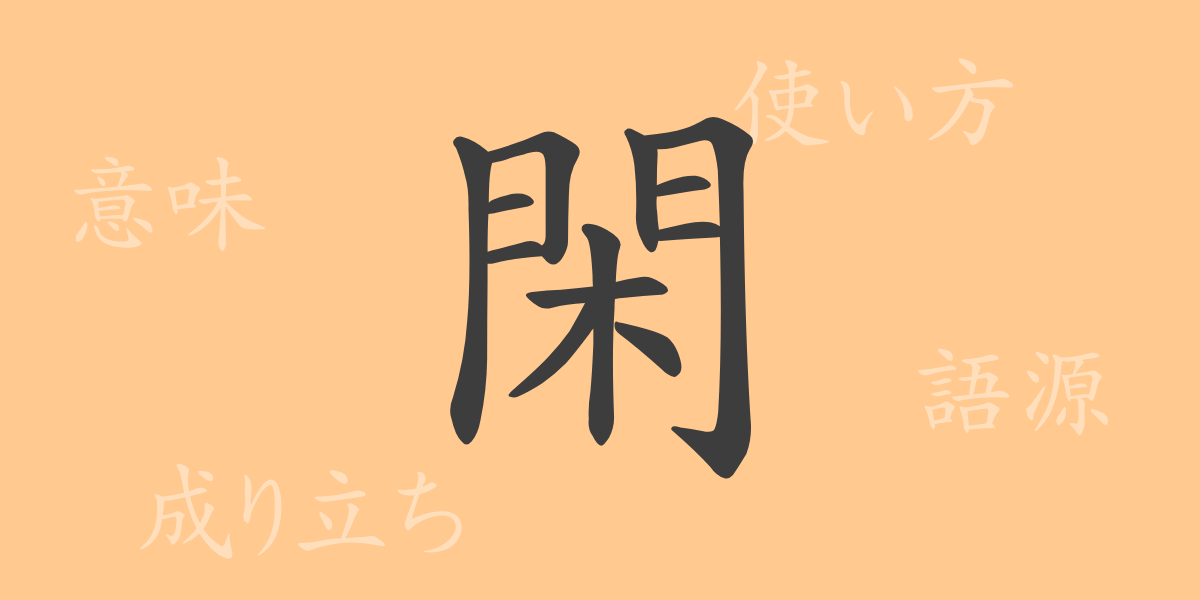The character “閑” (Kan) symbolizes a time of tranquility. This single character holds a deep meaning that reflects the Japanese spirit. In this article, we explore the history behind the commonly used Kanji “閑” (Kan), its meaning, and how it seamlessly integrates into our daily lives. Immerse yourself in the culture and philosophy encapsulated within just one Kanji character.
The Origins (Etymology) of 閑
The Kanji “閑” (Kan) originated in ancient China. It is structurally composed of the radical for “gate” (もん/Mon), combined with the character for “wood” (き/Ki), representing a tree standing quietly beside a gate. Over time, this character came to symbolize stillness, leisure, and peace.
The Meaning and Usage of 閑
“閑” (Kan) is used to denote a state of quiet calm, as well as leisure and free time. It is often used in the form of “閑散” (Kansan), describing a place with few people and a quiet atmosphere. In business contexts, it can refer to a quiet shopping district or market situation.
Reading, Stroke Count, and Radical of 閑
Let’s take a closer look at the reading, stroke count, and radical of the Kanji “閑” (Kan).
- Reading: The On’yomi (Sino-Japanese reading) is “Kan”, while the Kun’yomi (native Japanese reading) includes “Shizu-ka” and “Hima”.
- Stroke Count: The Kanji “閑” (Kan) has 12 strokes.
- Radical: The radical is “門” (Mon), and characters containing this radical are referred to as “mon-gamae” (gate radical characters).
Idioms, Phrases, and Proverbs Using 閑 and Their Meanings
There are various idioms, phrases, and proverbs that include “閑” (Kan), such as:
- 閑散 (Kansan) – A quiet place with few people.
- 閑静 (Kansei) – A quiet and calm atmosphere.
- 閑話休題 (Kanwakyuudai) – Meaning “that aside, let’s return to the main subject.”
- 閑居 (Kankyo) – The state of having an abundance of free time.
These idioms and phrases are used in everyday conversation, literature, and business contexts to convey stillness, leisure, and composure.
Summary on 閑
The Kanji “閑” (Kan) plays a significant role in our lives by representing tranquility and leisure. Reflecting on its evolution from its origins to its modern usage allows us to appreciate the richness of the Japanese language and the cultural backdrop embedded in its words. For those of us living busy lives in modern society, the meaning of “閑” (Kan) serves as a reminder of the importance of having peace of mind.

























